Conference Chair: Dr. Alexandra King
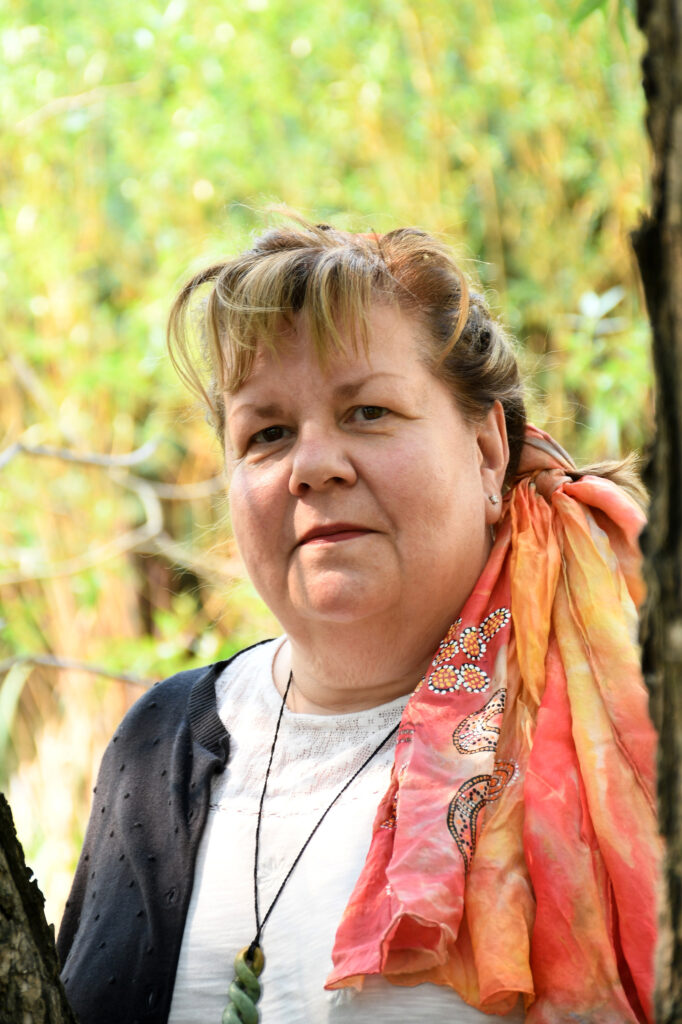
Alexandra King is a citizen of the Nipissing First Nation (Ontario). She is also the inaugural Cameco Chair in Indigenous Health and Wellness at the University of Saskatchewan. Dr. King is the lead researcher for the waniska Centre. She brings leadership skills in culturally safe and responsive research and care. This includes expertise in etuaptmumk (Two-eyed Seeing), which brings together Indigenous and Western worldviews or forms of knowledges, and Ethical Space, which needs to be created when peoples with disparate worldviews are poised to engage each other. She is a Principal Investigator on various other Canadian Institutes of Health Research grants related to Indigenous people and HIV, HCV and co-infections. Her other research interests include Indigenous wellness and Indigenous research ethics.
Conference Moderator: Jennifer Quesnel

Jennifer Quesnel is the host and editor of Researchers Under the Scope, a bi-weekly podcast for the Office of the Vice-Dean of Research at the University of Saskatchewan’s College of Medicine. She earned her BA in Journalism and Communications at the University of Regina and went on to work at Global Regina and CBC Saskatchewan. Her roots are French-Canadian, Métis, British and Ukrainian. Following the Red River Resistance, her father’s family settled in the village of Manigotagan, MB, as it grew from a fur trade outpost to a logging and mining community. Jennifer believes everyone has a story. Her goal is to listen and find ways to help others share theirs. A Dave Rogers RTDNA award winner and Gemini winner for “Best Local Newscast,” her long list of awards and nominations is a testament to a career powered by passion and persistence and endless positivity.
Keynote Speaker: Senator Mary Jane McCallum

Senator Mary Jane McCallum is a Cree woman from the Barren Lands First Nation in Brochet, Manitoba. She attended the Guy Hill Residential School from 1957–1968. Senator McCallum spent nearly five decades providing care to First Nations in Manitoba as a dental nurse, dental therapist and dentist. In 2017, Senator McCallum was appointed to the Senate of Canada as a representative of Manitoba. She assumed this mantle with reconciliation top of mind, recognizing its importance for Canada if we are to be recognized as human rights leaders. Senator McCallum often speaks to diverse groups about residential school. She believes that Canada must never forget the genocide of their Original Peoples, and that lateral and vertical violence against Indigenous Peoples persists today; a result of sustained governmental policies. In recognizing and reclaiming autonomy, she believes that Indigenous Peoples are well on the journey towards reclaiming spirit and power.
Keynote Speaker: Bev Lawton (Founder/Director of Te Tātai Hauora o Hine National Centre for Women’s Health Research Aotearoa, Te Herenga Waka, Victoria University of Wellington), Matthew Bennett ( Hapori Research Advisor), Charles Lambert (Hapori Research Advisor)
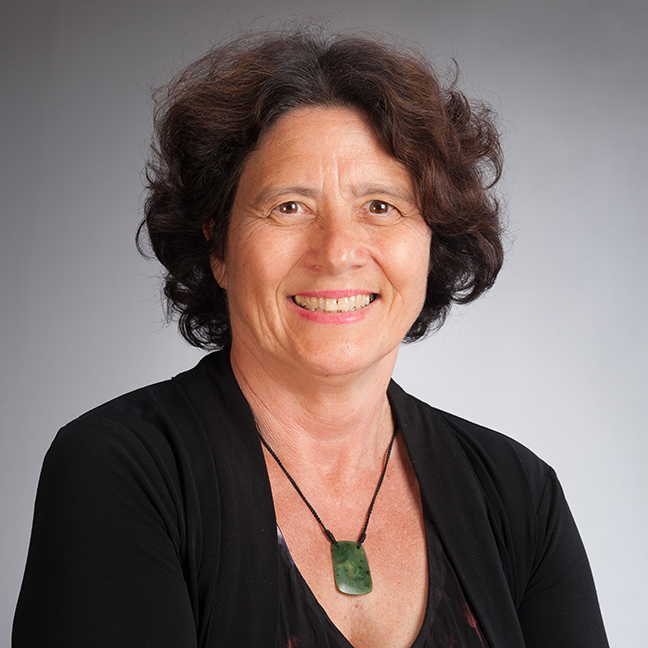
Bev was appointed an Officer of the NZ Order of Merit by the Queen for services to women’s health in 2005, Distinguished Fellow of the Royal College of General Practice in 2017 and awarded Australasian Menopause Society Award in 2019 for contribution to women’s health and in 2020 awarded the Royal Australia and New Zealand College of Obstetricans and Gynaecologists Māori Women’s Health Award.
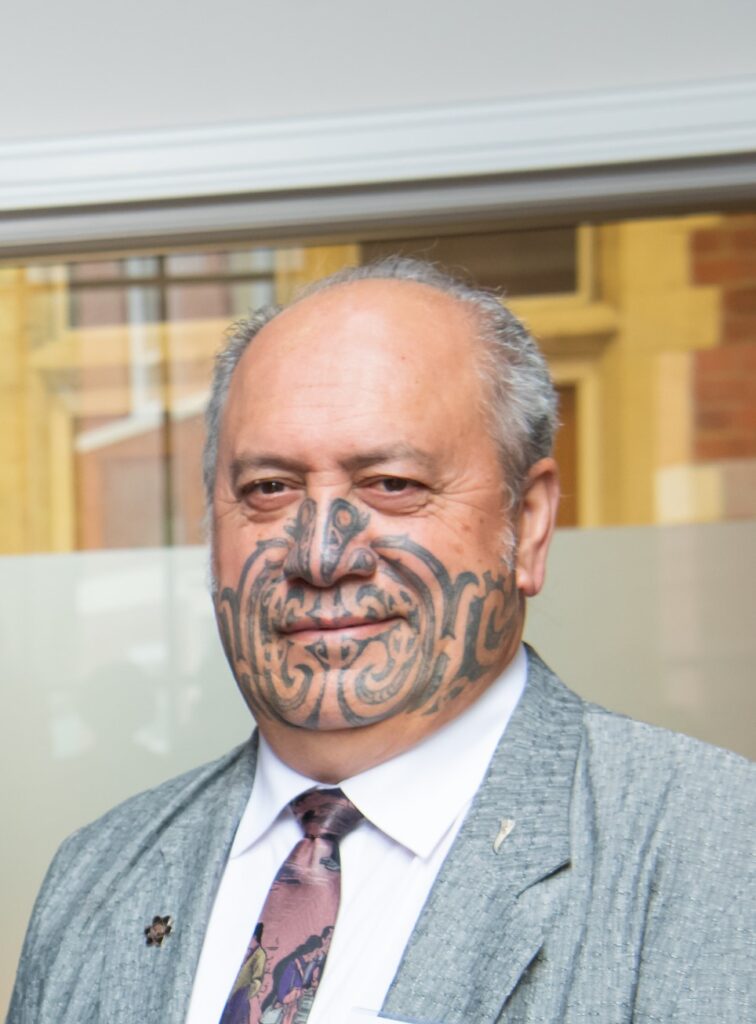
Charlie Lambert (Ngāti Pāhauwera) is a Kaumātua and community researcher with Te Tātai Hauora o Hine, the National Centre for Women’s Health Research Aotearoa. Charlie is an elected member of Ngāti Pāhauwera’s Tribal Governance entity and has experience as a treaty negotiator. Charlie continues to serve his people through research, his Marae, through the District Health Board, the Regional Council and Raupunga Water Committee.

Matthew Bennett (Te Arawa, Ngāti Pāhauwera) is a Kaumātua and community researcher with Te Tātai Hauora o Hine, the National Centre for Women’s Health Research Aotearoa. As part of a lifelong service to his various communities, Matthew has served on the HB Ethics Committee, been the Claims Manager of the Napier Hospital Claim (Wai 692), chaired the inaugural committee to establish the Hawkes Bay PHO and was the Māori Health Strategist of the Hastings Medical Centre.
Elders, Speakers and Performers

Elder Sharon Jinkerson-Brass (Saulteaux) is a member of Key First Nation in Saskatchewan. Sharon was part of the “Sixties Scoop,” in which she was removed from her family. She reunited with her family in the 1980s. Sharon received her cultural teachings from her beloved Kokum (grandmother)Rebecca, who was a midwife and traditional healer. Sharon’s cultural heritage has inspired her way of living and being, which in turn has informed her community work. As a Knowledge Keeper for the IWRG based in Vancouver, Sharon has worked on multiple health related, community-based research projects. As a multi-media artist, she has contributed to several published papers and made two videos related to Indigenous health research. Sharon believes that a relevant, sustainable, cultural foundation is the key for wellness for her people and all people.

Gayle Pruden is an Elder and jingle dress dancer from the Little Saskatchewan First Nation, located on Treaty 2 territory in Manitoba. She was raised by her grandmother, grandfather and great grandfather in the community of about 500 people. She is fluent in Ojibwe and is the oldest of five siblings. Gayle is a Two-Spirit trans woman who has danced for more than 15 years. She says the gift of dance was given to her in a dream and dancing has taken her across Canada and the United States. Dancing on the powwow trail has also enriched Gayle’s life with knowledge about the old ways of doing ceremony, which she also shares with others to keep the knowledge alive. The jingle dress is a sacred dress of healing and an important part of Gayle’s culture and identity. Being a visibly Two-Spirit dancer in a news video has also inspired 2SLGBT+ folks to reach out through social media to Gayle to thank her for the video and representation.

Jack Saddleback is a proud Nehiyaw (Cree) Two Spirit / IndigiQueer, trans, gay man from the Samson Cree Nation in Maskwacis, Alberta. As the former Co-Interim Executive Director with OUTSaskatoon and the Board Co-Chair with 2 Spirits in Motion, Mr. Saddleback works closely within the Queer community and the Indigenous community to address reconciliation and decolonization work that incorporates an intersectional lens. As the former President for the University of Saskatchewan Students’ Union (USSU), Mr. Saddleback was the third Aboriginal person and the first transgender person to hold the role. A recipient of numerous awards, such as the 2018 SK Young Humanitarian of the Year from Red Cross, Mr. Saddleback brings a number of marginalized voices to the forefront through his inspirational work.

Prof. Chris Cunningham is from Aotearoa New Zealand, where he is a member of Ngati Raukawa and Ngāti Toa tribes. He is Professor of Māori and Public Health (Māori are the Indigenous peoples of NZ) and Director of the Research Centre for Hauora and Health at the Wellington campus of Massey University of New Zealand. Chris was co-chair of the first two World Indigenous Peoples’ Conferences on Viral Hepatitis, which were held in Australia and Alaska. Chris has undertaken many research projects on viral hepatitis in New Zealand, especially focussing on Māori health and development. Hepatitis B is a large problem in NZ and Chris has been involved in running the NZ Hepatitis B Surveillance Programme, which is the largest and longest running surveillance program in the world.

Professor James Ward has over 20 years’ experience working within Aboriginal health and communities in Australia. He is a descendent of the Pitjantjatjara and Nurrunga clans of central and south Australia. He is presently the Director of the University of Queensland Poche Centre for Indigenous Health and Professor in the UQ School of Public Health. His research expertise is in the areas of sexually transmissible infections and blood borne viruses including hepatitis within Aboriginal Health spanning areas of epidemiological, social and health systems research. He is also a member of the World Indigenous Peoples’ Conference on Viral Hepatitis organizing committee and was involved in organizing the first two conferences.
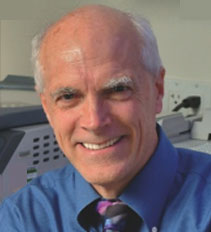
Dr. Brian J. McMahon is a clinical Hepatologist and the Director of the Liver Disease and Hepatitis Program at the Alaska Native Medical Center in Anchorage, Alaska, and guest researcher at the Arctic Investigations Program of the CDC in Anchorage. He is a fellow in the AASLD and a Master in the American College of Physicians. His program follows over 1200 Alaska Native Persons with chronic hepatitis B and 2400 with chronic hepatitis C throughout Alaska. The hepatitis B program has already met the all WHO 2030 goals for HBV. He conducts research on long-term outcome and management of chronic hepatitis B and C. He was involved in the previous World Indigenous Peoples’ Conference on Viral Hepatitis events, sits on the organizing committee and brings expertise in how viral hepatitis impacts Alaska Natives and American Indians.
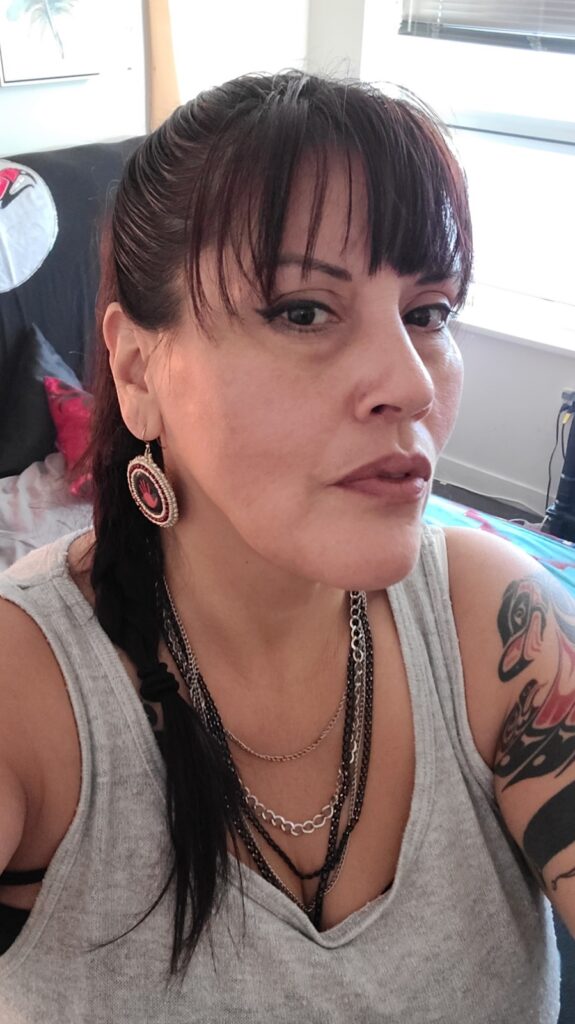
Candice Norris is a community research associate with pewaseskwan – the Indigenous Wellness Research Group, based in Vancouver. She has been part of the team for several years and has worked as a peer researcher on a number of projects involving women in the Downtown Eastside. She is of mixed Cree and Dene descent, with ties to what are now known as Alberta and the Northwest Territories. She loves ceremony and brings her voice and drum to many meetings and events. Candice is a proud mother of three children and a kokom (grandmother) to one beautiful grandchild.
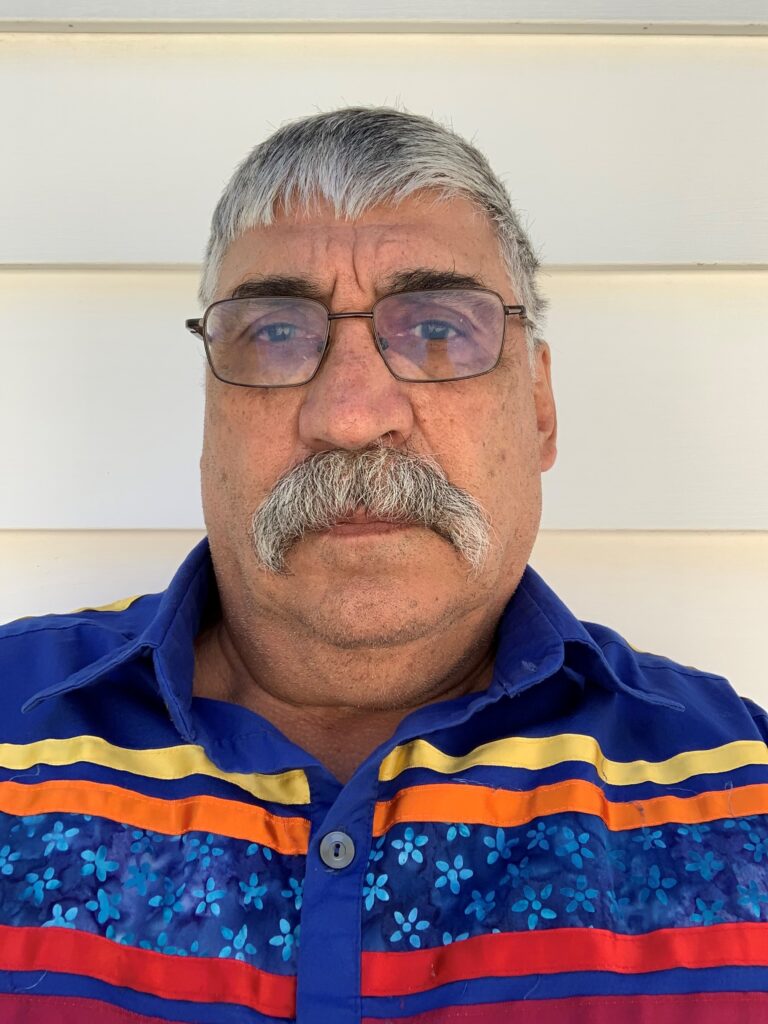
Elder Calvin Racette retired from an education career that spanned 34 years. He spent his entire career working in the area of Indigenous education. He has had a wide range of experiences and continues to remain involved. He has had several publications in Metis history and is seen as a local historian by the community.
Calvin serves on several committees and boards as a representative of the Metis community in the areas of history and culture. He recently served as a board member representing the Metis portfolio for SaskCulture. He also works with many agencies as a Metis Knowledge Keeper on behalf of Eastern Region 3 of MN-S. These agencies include the Cameco Advisory Board on Indigenous Health and Wellness, the Sask. Stories Committee Advisory Board for HIV/Hepatitis C, and the Advisory for the Sask. Cancer Agency. He is also actively involved in a Traditional Land Use Project with Easter Region 3. He serves as a historian, a storyteller and knowledge keeper.
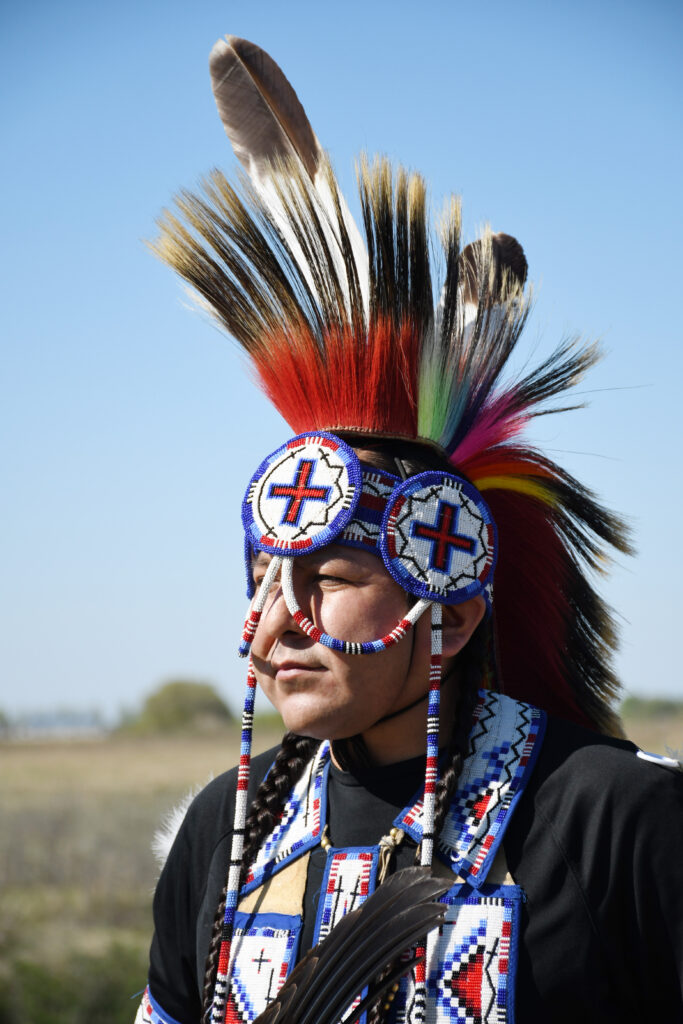
TJ Warren collaborates with a collective of performers who are living on Treaty 6 territory but are from tribes across North America. The group, consisting of three dancers and four singers, represents three styles of dance in their performance: men’s prairie chicken dance, men’s traditional dance and women’s fancy dance. TJ Warren collaborates with a collective of performers who are living on Treaty 6 Territory but are from tribes across North America. They include TJ (Diné), Laryn Oakes (Cree/Meskwaki), Hunter Blassingame (Northern Cheyenne) and othes. The dances are a social representation and contemporary evolution of existing dances with their own history and origin. The origin of the dance is shared and acknowledged performance to highlight the continued importance and relevance of the dances today.
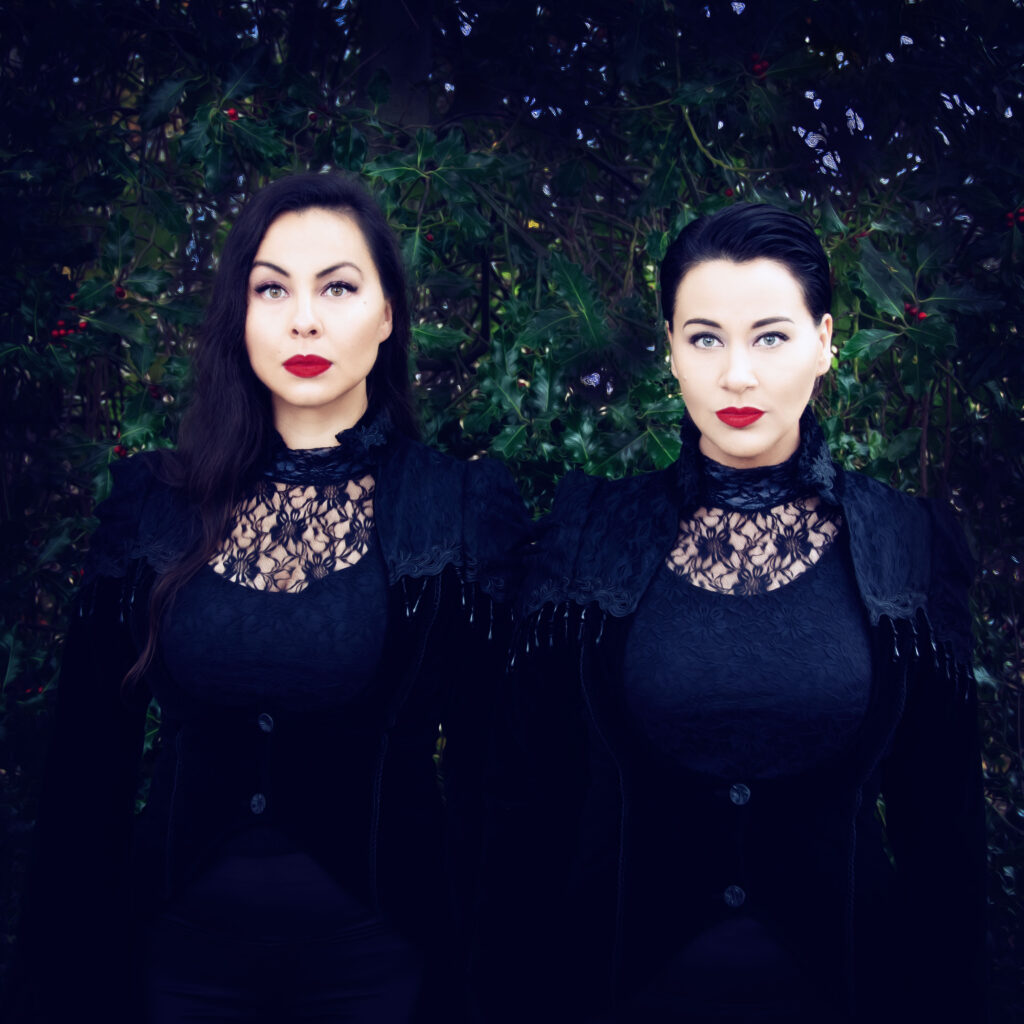
With a style perpetually galvanized by darkness and haunting northern beauty, sisters, Tiffany Ayalik and Inuksuk Mackay, come together to create Inuit style throat singing duo, PIQSIQ. Performing ancient traditional songs and eerie new compositions, they leave their listeners enthralled with the infinity of possible answers to the question “what is the meaning of life.”
With roots in Nunavut, the two grew up in Yellowknife, Northwest Territories. After years of forging hard won skill, they developed their own form blended with haunting melodies and other worldly sounds. Approaching adulthood, they realized throat singing was not only a musical expression, but a radical, political act of cultural revitalization.
As PIQSIQ, they have recorded four studio albums and perform improvisational looping live, creating a dynamic audience experience that changes with every show.
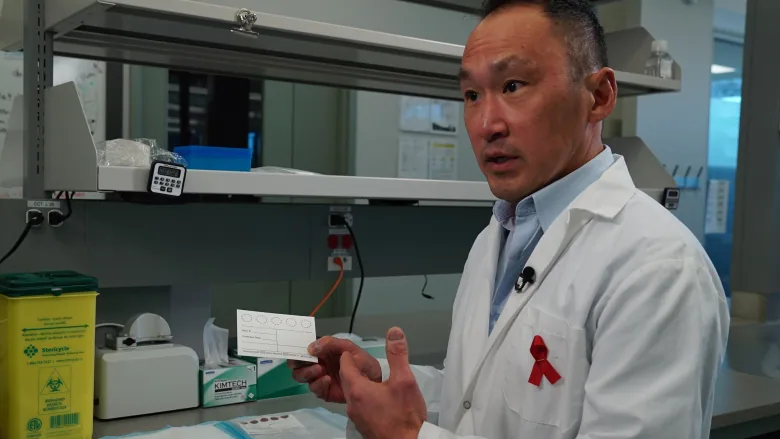
Dr. John Kim is the Chief of the Canadian government’s National HIV Reference Services (NLHRS) Laboratory at the National Microbiology Laboratory’s JCWilt Infectious Disease Center in Winnipeg, MB. He has extensive experience in testing including reference services for HIV/HTLV, monitoring proficiency in Canadian public health and hospital labs and support for the government’s Track surveillance surveys of key populations. Recently they have engaged with Indigenous populations in Canada comprised of First Nations and Metis communities to increase access to testing opportunities for STBBI infections using dried blood spots.

Paula Binks is a PhD scholar and Hepatitis program manager at Menzies School of Health Research. Paula has worked in research since 1998 and draws on her experience as a Laboratory Scientist, Registered Nurse and Project Manager. During the past 13 years working as a Project Manager at Menzies Paula has implemented multiple research studies including epidemiological, data-linkage, cohort and clinical trials in Australia’s First Nations Peoples. Paula has a strong understanding of the complexities behind the NT landscape and Aboriginal culture and the importance of building trust and respectful partnerships which is essential for the successful implementation of research projects.
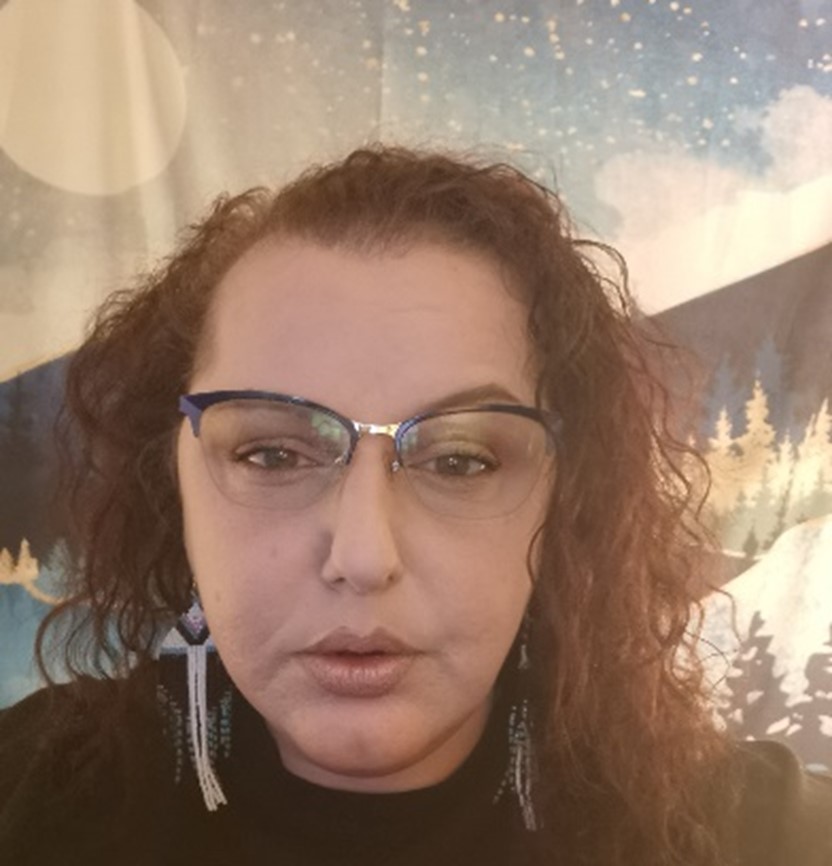
Melissa Morris is the Community Coordinator for the Waniska Centre for HIV/HCV/STBBIs Research and she works with the centre through Ka Ni Kanichihk in Winnipeg. She joined the team in August 2021. Melissa is of Metis/Jewish descent. She was born in Winnipeg and also lived on the West coast for many years, including residing in Vancouver’s Downtown Eastside for 12 years. Melissa moved back to Winnipeg 12 years ago to live healthy and walk down her Red Road. Melissa is a person with lived experience in HCV, and living experience with HIV. Her profound healing has made it possible for her to talk on personal lived experience. Melissa is a graduate of the Red River College’s Child and Youth Care Program where she focused on Indigenous youth. Melissa spent five years working with Indigenous youth in Winnipeg’s inner city.

Sandra Laframboise is a Two Spirit/transgender person of Metis Origin. Her father is Algonquin and Mother is Cree/French and Irish, who has been advocating for Queer Rigths and Transgender Rights at the early age of 11.5 years old since 1971 when she marched in the 1st Gay March on Parliment Hill. she has many intersectional struggles she faced as a child/teen nd young adult which includes severe poverty, sexual incest and rape, to sex work and drug use. In the early 1990’s Sandra exited these trades and went to school and became a Registered Psychiatric Nurse who dedicate her life on supporting the Transgendered Community advocating for HIV/STBBI’s and HEP C and Harm Reduction as a person with lived experienced.

Brad Moran, PharmD, is a member of the Turtle Mountain Band of Chippewa in North Dakota. He was born and raised on the Fort Peck (Assiniboine and Sioux) Reservation in northeast Montana. Brad graduated from the University of Montana Skaggs School of Pharmacy in 2006. He returned home to work with the Fort Peck Service Unit Indian Health Service later that year, where he still practices as a clinical pharmacist. Brad is “ECHO Trained” and began treating HCV in 2009 with the guidance and expertise from UNM Project ECHO telehealth clinics. His professional interests include HCV treatment, substance use disorder treatment and diabetes management.

Dr Melissa Carroll is a proud Aboriginal woman from Wiradjuri Country, NSW. She is an Advanced Trainee in General and Acute Care Medicine within the Royal Australasian College of Physicians (RACP). She spent much of her training in the Top End, Northern Territory, where her passion for improving availability of and access to liver care developed. She is currently pursing further training in Gastroenterology and Hepatology, intending to return to regional and remote medicine. Dr Carroll is the trainee representative on the RACP Aboriginal and Torres Strait Islander Health Committee (ATSIHC) and previously a Director on the Board of the Australian Indigenous Doctors’ Association (AIDA), she is passionate about contributing to the growth, development and representation of Indigenous Doctors in Medicine. Her current projects are centred around hepatocellular carcinoma in Aboriginal and Torres Strait Islander People.
Michael Larkin is a Kokatha man from South Australia. He works at the Aboriginal Health Council of South Australia as the Manager of Public Health and Primary Health Care. Michael has a background working in Aboriginal health which has included policy, research, health promotion, quality improvement, and program management. In the area of viral hepatitis he has previous work experience in coordinating a state-wide program to increase the numbers of Aboriginal people accessing monitoring and treatment for hepatitis B and hepatitis C, and also increasing the number of Aboriginal community organizations delivering needle and syringe programs. He is currently completing a PhD (part time) through Adelaide University with a focus on improving Hepatitis B management in Aboriginal communities.

The Hep B PAST Team works and lives in the Northern Territory (NT), Australia. The NT is vast and sparsely populated, with over 100 Aboriginal language groups spoken in its diverse landscape. The team brings together a wealth of knowledge, expertise and passion in eliminating chronic hepatitis B from the Aboriginal population in the NT. Teresa, Phillip, Jane and Kelly will be presenting on behalf of the team and the many communities they work in. Teresa De Santis is a proud Tiwi woman from the Tiwi Islands, and an Aboriginal Health Practitioner Coordinator for East Arnhem in the NT. Phillip Wilson is from Nauiyu, is a leader, artist, and Aboriginal Health Practitioner in his community. A/Prof Jane Davies is an infectious diseases physician and senior clinical research fellow, with over 10 years’ experience working on Larrakia country in Darwin in global health and infectious diseases. Kelly Hosking is the Director of Sexual Health and Blood Borne Viruses for the NT Department of Health. She lives and works on Larrakia country where she has held various senior nursing roles in public health in Aboriginal and Torres Strait Islander communities.

Emily Pegler is a proud Yamatji woman and Research Coordination Assistant at the University of Queensland’s School of Public Health. Emily has a Bachelor of Social Science, University of the Sunshine Coast, and is currently completing her Master of Philosophy under the Supervision of Dr Andrew Smirnov and Professor Gail Garvey. She has worked at the Queensland South Native Title Services (QSNTS) as a research/anthropological intern and volunteered with Australian Indigenous Mentoring Experience (AIME). Emily has also completed an Independent Research Project under the supervision of Dr Shannon Brincat, investigating the impact of the Covid -19 pandemic on Indigenous communities in Brazil. She has a particular interest in increasing culturally responsive initiatives to improve the health of Aboriginal and Torres Strait Islander people and increasing the prevalence of Indigenous knowledge systems.

Dr. Stuart Skinner received his Medical Degree in 2002 from the University of Saskatchewan. He also received his Diploma in Tropical Medicine and Hygiene from the University of Alabama-Birmingham in 2005 and Infectious Diseases fellowship from the University of Manitoba in 2007. Currently, he works as an Infectious Disease specialist in Regina, Saskatchewan, with a focus on HIV and Hepatitis C for vulnerable populations and Indigenous communities. He is the Section Lead for the Division of Infectious Diseases and the Regina COVID-19 Pandemic Area Chief of Staff. Dr. Skinner founded and is the Executive Director for the Wellness Wheel Medical Clinic, which provides a holistic approach to communicable and chronic diseases combining Western and Indigenous approaches in care that is driven and led by people with lived experience and Indigenous communities.

Jolene Blocka graduated from the University of Saskatchewan in 2007, with a Baccalaureate Degree in Nursing.
She’s a mom of 3 & has been working for Indigenous Services Canada in the community of Big River First Nation for 15 years, most recently as Nurse in Charge for 5 FN communities. She’s been instrumental in the development & success of the KYS program in Big River First Nation.

April Mazzuca is a UBC graduate student with the Cedar Project, an Indigenous governed cohort study working with Indigenous Peoples who use drugs in Vancouver and Prince George BC Canada . April, alongside her mentor Sherri Pooyak, was involved in helping evaluate Cedar Project’s Blanket Program, a culturally safe case management approach supporting HCV treatment
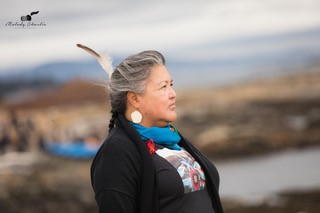
Sherri Pooyak is of Cree ancestry from Sweetgrass First Nation, Saskatchewan and currently resides back in her home territory of Treaty 6 in Saskatoon, SK. Completing her Masters of Social Work in 2009, Sherri has been working in Indigenous health since 2007, first with the Indigenous Peoples Health Research Centre (until 2010). Since 2011, Sherri has worked with the Canadian Aboriginal AIDS Network, first as a Community Research Facilitator and in 2012, as Community-based Research Manager (CBRM) with the Aboriginal HIV/AIDS Community Based Research Collaborative Centre (AHA Centre). From June 2017 to September 2020, she served as the Co-Chair for Island Health Human Research Ethics Board as the first Indigenous person to hold this position.

Kate Dunn has a background in nursing and public health and currently works with Indigenous communities on increasing access to hepatitis C awareness and access to care through the ECHO program in Alberta. As an Anishinaabe woman Kate is passionate about working toward health equity with Indigenous communities and this has motivated an education journey toward a doctorate degree where she is currently wrapping up Wisdom Seeking work (research) with Indigenous Knowledge Holders and Elders to create culturally relevant hepatitis C awareness resources. Kate is an advocate for Indigenous wholistic health approaches and seeks to continually work within a respectful and reciprocal relationship with Indigenous communities.
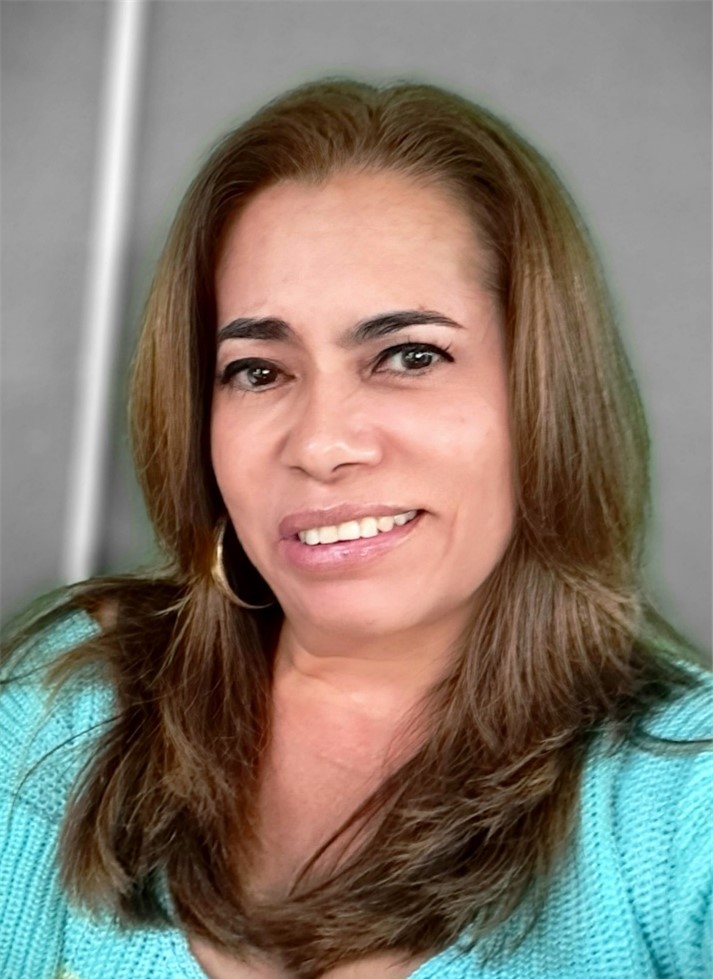
Diana María Castro-Arroyave, Social Researcher, academic advisor of the Hub for Social Innovation in Health for Latin America and the Caribbean (SIHI-LAC-Hub). Since the undergraduate degree, she has been dedicated to community work from the perspective of Community Social Psychology and to the training of researchers from the integral perspective of community-based social transformation.
For the last 12 years, she has been working in partnership with national and international universities and researchers on issues related to HIV, hepatitis B and other infectious diseases in indigenous communities in the country. For this reason, her doctoral thesis was titled: The expansion of HIV and AIDS: perceptions and social responses in the Wayuu of Colombia.
